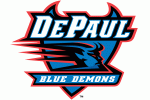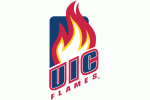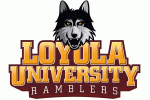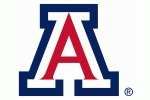- Joined:
- Aug 12, 2010
- Posts:
- 8,292
- Liked Posts:
- 3,054
Cubs neighbors want more open space, less parking in triangle project - Chicago Sun-Times
The Cubs are asking architects to redesign the long-stalled triangle building promised in exchange for a 1,791-seat expansion of the Wrigley Field bleachers, armed with a survey that shows area residents want less parking and more open space.

The original plan called for a seven-story building dominated by a parking garage. The design also included an upscale restaurant, retail stores specializing in Cubs merchandise, team offices, below-ground batting cages and a rooftop garden.
The Internet survey conducted June 7-12 by Atlanta-based Alexander Babbage Inc. asked residents within a mile of the ballpark what features they favored.
The results were overwhelming.
Of the 785 responding residents, only 22 percent want the Cubs to build the 400 parking spaces included in the planned development approved by the City Council.
The rest want to eliminate parking altogether at that location or dramatically reduce the number of spaces to leave more open space.
Specific outdoor activities favored in an open-air plaza include: holiday festivals (81 percent); live music (79 percent); movies in the park (78 percent); a permanent outdoor skating rink (56 percent), and viewing parties for Cubs road games (51 percent).
Inside the smaller building, residents want: a casual dining restaurant (75 percent); a sports museum (59 percent), and an upscale food market or deli (55 percent). Less desirable elements include: upscale dining (42 percent); a hotel (38 percent); a bakery (36 percent), and a bowling alley (36 percent).
The survey also showed 85 percent of Wrigley neighbors want more concerts at the ballpark, such as the upcoming July 31 and Aug. 1 shows by Paul McCartney, and 89 percent appreciate “neighborhood protections” tied to those events.
Around the same time as the Internet survey, sources said the Cubs conducted a telephone poll to gauge public support for using tax dollars to help renovate Wrigley. The poll specifically tested public sentiment for using taxes on amusements, restaurant meals and hotel rooms to help pay for it. Those results have not yet been analyzed.
The triangle building has already been redesigned once by former Cubs owner and Tribune Co. CEO Sam Zell.
Now, it’s back to the drawing board. Sources said the redesign might include a shorter structure built around an open square filled by an ice rink in the winter and a farmer’s market and outdoor concerts in the summer. Lost retail and parking revenues could be recouped by selling corporate naming rights to the plaza.
“By building more open space, we change the economics of both the construction and the potential for commercial space. We have to find the right balance,” said Mike Lufrano, Cubs general counsel and executive vice president of community affairs.
Lufrano said he’s not surprised by the thumbs-down on parking. “Bringing 400 additional cars right to the center of Clark and Addison adds traffic to the heart of the intersection that gets the most congested during Wrigley Field events,” he said. “If we can find a solution that moves the parking somewhere else, many of our neighbors would appreciate it. It won’t eliminate the parking. It’ll just find a better location for it.”
The final price tag for the triangle building will determine how much public support Cubs Chairman Tom Ricketts needs to rebuild Wrigley.
Mayor Rahm Emanuel has called Ricketts’ plan to use 35 years’ worth of amusement tax growth to renovate the 97-year-old stadium a “nonstarter.”
Financing alternatives include: reviving Zell’s failed plan to have the state buy and renovate Wrigley; modifying the amusement tax plan to give the city some growth; creating a tax-increment financing district around Wrigley; using historic preservation tax credits or broadening the boundaries of a 1 percent tax on downtown restaurant meals used to finance McCormick Place. That boundary now extends as far north as Diversey.
Another, more controversial idea is the sale of personal seat licenses similar to the Soldier Field PSLs that helped provide the Chicago Bears’ contribution to their taxpayer-supported stadium.
If the Cubs can’t get any taxpayer assistance, there’s another possibility: scrap the triangle building altogether and pump all of the Ricketts family money into the landmark stadium.
















